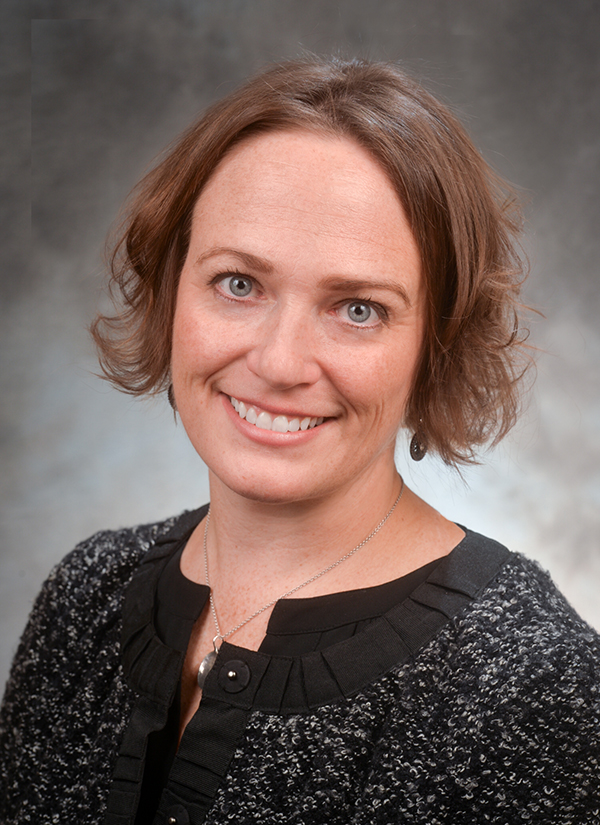AOTA member spotlight: Katie M. Polo, DHS, OTR, CLT-LANA
Katie M. Polo, DHS, OTR, CLT-LANA is an Assistant Professor in the School of Occupational Therapy at the University of Indianapolis. She spoke to Jamar Haggans, MS, OTR/L, Director of Quality at AOTA about her current position.

Jamar Haggans: Can you tell us about your current position?
Katie Polo: Currently, I'm an Associate professor in the School of Occupational Therapy at the University of Indianapolis. I also work collaboratively with Cancer Support Community Indiana, where I develop and run programming for cancer survivors. I work with students in our OTD and MOT cohorts and run a cancer survivorship elective, in which we go to cancer support communities, and our students develop programming for cancer survivors.
Jamar Haggans: How did you become interested in quality?
Katie Polo: Measuring and looking at quality is important, not only to our individual clients, but the populations and the organizations we serve.
I started looking at quality early in my career when I was developing programming for clients with lymphedema at the hospital where I was employed. I had to understand how to measure quality and appraise that quality for change within the programs, so we could use the data to best inform the changes we needed to make. Also, to make sure we were delivering the best services possible to our clients.
Recently I’ve gone through training for Six Sigma quality improvement and design thinking, which works to influence our day-to-day processes and procedures as occupational therapy practitioners.
Six Sigma training has helped me when working with my community partners. Specifically, it allows me to understand the methodical steps we can take to improve processes and procedures of the cancer programming we deliver to best meet the needs of those we serve. I am currently applying the design thinking training to create an innovative solution to prototype and test the cancer survivorship screening tool I developed. It allows me, through an iterative process, to collaborate with the eventual users of my screening tool and understand their needs and preferences so we arrive at a practical solution. This process is a very "client-centered" way to go about problem solving, so it seems to come naturally to occupational therapy practitioners!
Jamar Haggans: What are the greatest things that you have learned about working in health care quality?
Katie Polo: Understanding how our services impact clients individually, the populations we serve, and then the organizations in which we serve. Appraising quality and understanding how we have such a large impact on those folks we serve is humbling. It is helpful to make sure we can track what we are doing and that we can monitor outcomes to make changes within our processes and procedures as occupational therapy practitioners, to deliver the best care possible.
Jamar Haggans: How do you recommend occupational therapy practitioners ensure they are incorporating quality principles into practice?
Katie Polo: Staying abreast of the evidence is extremely important, and utilizing that evidence not only in individual client exchange but also when developing programming for various organizations. Using the evidence and sharing that evidence with the clients and organizations in which we serve is critical; this ensures that they are informed of why we're doing what we're doing and supports decisions we're making collaboratively with clients.
Jamar Haggans: What advice do you have for practitioners interested in learning more about quality?
Katie Polo: I would have to say having a mentor. That is extremely important. I have collaborated with people not only inside our profession, but also outside the profession, who have a great deal of knowledge in some of the quality improvement processes and evidence supporting client care.